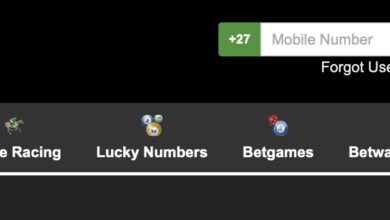
Introducing the ultimate guide to South African loans, your one-stop resource for discovering the best borrowing options in the country. Whether you need a personal loan for unexpected expenses, a home loan for your dream house, or a business loan to fuel your entrepreneurial ambitions, we have you covered.
In this comprehensive article, we will explore the various types of loans available in South Africa, including their benefits, requirements, and interest rates. From traditional banks to micro-lenders and online platforms, we’ll delve into the pros and cons of each lending institution, helping you make an informed decision.
Our mission is to empower you with the knowledge and confidence to secure the loan that aligns with your unique financial goals. We understand that choosing the right loan can be overwhelming and confusing, but with our expert advice and unbiased insights, we aim to simplify the process.
So, whether you’re a first-time borrower or have a complex credit history, join us as we navigate the world of South African loans and embark on a journey toward financial success.
Types of Loans Available in South Africa
When it comes to loans in South Africa, there are various options to choose from depending on your needs and financial situation. Understanding the different types of loans available is key to finding the one that suits you best. Here are some of the most common loan types in the country:
Personal Loans
Personal loans are one of the most popular loan options in South Africa. They are versatile and can be used for various purposes, such as consolidating debt, paying for medical expenses, or financing a holiday. Personal loans typically have fixed interest rates and repayment terms, making them a predictable option for borrowers.
Home Loans
If you’re looking to purchase a property in South Africa, a home loan is essential. Home loans allow you to finance the purchase of a house or apartment, with repayment terms typically ranging from 20 to 30 years. The interest rates on home loans can vary depending on the lender and your creditworthiness.
Business Loans
Entrepreneurs and small business owners often turn to business loans to fund their ventures. These loans can be used to start a new business, expand an existing one, or cover operational expenses. Business loans in South Africa are offered by various financial institutions and can be secured or unsecured, depending on the lender’s requirements.
Vehicle Loans
If you’re in need of a new car or motorcycle, a vehicle loan can help you finance your purchase. These loans, also known as auto loans or vehicle finance, allow you to spread the cost of your vehicle over a fixed period. The interest rates and repayment terms can vary depending on the lender and the type of vehicle you’re financing.
Eligibility Criteria for Obtaining a Loan in South Africa
Before applying for a loan in South Africa, it’s important to understand the eligibility criteria set by lenders. While the specific requirements can vary between institutions, there are some common factors that lenders consider when evaluating loan applications. Here are the key eligibility criteria you should be aware of:
Credit Score
Your credit score plays a significant role in determining your eligibility for a loan in South Africa. Lenders use your credit score to assess your creditworthiness and determine the level of risk associated with lending to you. A higher credit score increases your chances of approval and may result in better interest rates.
Income and Affordability
Lenders want to ensure that you have a stable income and can afford to repay the loan. They will typically ask for proof of income, such as bank statements or payslips, to assess your affordability. The amount you can borrow will depend on your income and expenses, as lenders need to ensure that you have enough disposable income to meet the repayment obligations.
Employment Stability
Lenders prefer borrowers who have a stable employment history, as it demonstrates their ability to maintain a steady income. If you’re self-employed or have irregular income, you may need to provide additional documentation, such as tax returns or financial statements, to support your loan application.
Popular Lenders and Financial Institutions in South Africa
When it comes to borrowing money in South Africa, there are numerous lenders and financial institutions to choose from. Each institution has its own set of offerings, interest rates, and eligibility criteria. Here are some of the most popular lenders and financial institutions in the country:
Traditional Banks
Traditional banks, such as Absa, Standard Bank, and Nedbank, are well-established institutions that offer a wide range of loan products. They typically have strict eligibility criteria and may require collateral or a good credit history to approve your application. However, they often offer competitive interest rates and personalized service.
Micro-Lenders
Micro-lenders, also known as payday lenders, provide short-term loans with quick approval processes. These lenders cater to individuals who may not qualify for traditional bank loans due to their credit history or lack of collateral. While the interest rates on micro-loans are often higher, they can be a viable option for those in need of immediate cash.
Online Platforms
Online lending platforms, such as RainFin and Wonga, have gained popularity in recent years. These platforms connect borrowers with investors willing to lend money at competitive rates. Online lenders often have streamlined application processes and may consider alternative credit scoring methods, making them an attractive option for individuals with limited credit history.
Factors to Consider When Choosing a Loan in South Africa
Choosing the right loan in South Africa requires careful consideration of several factors. While interest rates and repayment terms are important, there are other aspects to keep in mind to ensure you make an informed decision. Here are some key factors to consider when selecting a loan:
Interest Rates
The interest rate on a loan determines the cost of borrowing and affects your monthly repayments. It’s important to compare interest rates from different lenders to find the most competitive option. Remember to consider whether the rate is fixed or variable, as this can impact your repayment strategy.
Fees and Charges
In addition to interest rates, loans often come with fees and charges. These can include initiation fees, monthly service fees, and early settlement penalties, among others. Understanding the full cost of the loan is crucial to avoid any surprises and ensure you can afford the repayments.
Repayment Terms
The length of the repayment period can vary between loans and lenders. Longer repayment terms may result in lower monthly repayments but can also mean paying more in interest over time. Consider your financial situation and choose a repayment term that aligns with your ability to comfortably make the payments.
Flexibility and Features
Some loans offer additional features and flexibility that can be beneficial for certain borrowers. For example, some lenders allow for early repayments without penalties or offer payment holidays in case of financial difficulty. Assess your needs and priorities to determine which loan features are important to you.
Understanding the Loan Application Process in South Africa
The loan application process in South Africa can vary depending on the lender and the type of loan you’re applying for. However, there are some general steps that are typically involved. Understanding the process can help you prepare and navigate through it smoothly. Here’s an overview of the loan application process:
- Research and Compare: Start by researching different lenders and loan options to find the one that suits your needs. Compare interest rates, fees, and eligibility criteria to narrow down your choices.
- Gather Documentation: Once you’ve chosen a lender, gather the necessary documentation. This may include proof of identity, proof of income, bank statements, and any other documents requested by the lender.
- Complete the Application: Fill out the loan application form provided by the lender. Be thorough and accurate, as any discrepancies or missing information could delay the approval process.
- Submit the Application: Submit your completed application form along with the required documentation to the lender. Some lenders may allow you to apply online, while others may require an in-person visit to a branch.
- Wait for Approval: The lender will review your application and assess your eligibility based on their criteria. This process can take anywhere from a few hours to several days, depending on the lender and the complexity of your application.
- Receive Approval and Terms: If your application is approved, you will receive an offer letter outlining the loan terms, including the interest rate, repayment period, and any fees or charges associated with the loan.
- Accept the Offer: Review the loan offer carefully and ensure you understand all the terms and conditions. If you’re satisfied, sign the loan agreement and return it to the lender.
- Receive Funds: Once the lender has received the signed loan agreement, they will disburse the funds to your designated account. The time it takes to receive the funds can vary depending on the lender and the payment method chosen.
Pros and Cons of Taking Out a Loan in South Africa
While loans can provide much-needed financial assistance, it’s important to weigh the pros and cons before committing to one. Here are some of the advantages and disadvantages of taking out a loan in South Africa:
Pros:
- Access to Funds: Loans provide access to funds that can be used for various purposes, such as emergencies, investments, or personal expenses.
- Flexibility: Depending on the loan type, you can often choose the repayment term and loan amount that suits your needs.
- Building Credit History: Responsible borrowing and timely repayments can help build a positive credit history, which can be beneficial for future financial endeavors.
Cons:
- Interest and Fees: Loans come with interest rates and fees that increase the cost of borrowing. It’s important to carefully consider the total cost of the loan before committing.
- Debt Burden: Taking on a loan means being responsible for regular repayments, which can be a burden on your monthly budget. Ensure you can comfortably meet the repayment obligations before borrowing.
- Risk of Default: If you’re unable to make the loan repayments, it can negatively impact your credit score and result in legal consequences, such as asset repossession or legal action by the lender.
Tips for Managing and Repaying Your Loan in South Africa
Managing and repaying your loan in South Africa is crucial to maintain a healthy financial position and avoid unnecessary stress. Here are some tips to help you effectively manage your loan:
Budget Wisely
Create a comprehensive budget that takes into account your monthly income and expenses, including loan repayments. This will help you stay on top of your finances and ensure you have enough funds to meet your repayment obligations.
Prioritize Repayments
Make your loan repayments a priority. Set up automatic payments or reminders to ensure you never miss a payment. If possible, consider paying more than the minimum required amount to reduce the overall interest paid and shorten the repayment period.
Communicate with Your Lender
If you’re facing financial difficulties or anticipate that you may miss a payment, it’s important to communicate with your lender. They may be able to offer temporary solutions or alternative repayment arrangements to help you through challenging times.
Avoid Taking on Additional Debt
While it may be tempting to borrow more money, it’s important to avoid taking on additional debt while repaying your existing loan. This can lead to a debt spiral and make it harder to manage your finances in the long run.
Frequently Asked Questions about South African Loans
Q: What is a credit score, and how does it affect my loan application?
A: A credit score is a numerical representation of your creditworthiness based on your credit history. Lenders use this score to assess the level of risk associated with lending to you. A higher credit score increases your chances of loan approval and may result in better interest rates.
Q: Can I get a loan in South Africa if I have a bad credit history?
A: While it can be more challenging to obtain a loan with a bad credit history, there are lenders in South Africa who specialize in providing loans to individuals with less-than-perfect credit. These lenders may have higher interest rates and stricter eligibility criteria, so it’s important to carefully consider your options before applying.
Q: How long does it take to get a loan approved in South Africa?
A: The loan approval process can vary depending on the lender and the complexity of your application. In some cases, you may receive an instant decision, while in others, it may take several days. It’s best to check with the lender regarding their expected turnaround time.
Q: Can I pay off my loan early?
A: In most cases, you can pay off your loan early. However, some lenders may charge early settlement fees or penalties for doing so. It’s important to review the loan terms and conditions to understand any potential charges associated with early repayment.
Conclusion: Making Informed Decisions about Loans in South Africa
Securing a loan in South Africa can be a significant financial decision, and it’s crucial to approach it with careful consideration and research. By understanding the different types of loans available, the eligibility criteria, and the pros and cons, you can make an informed decision that aligns with your unique financial goals.
Remember to compare interest rates, fees, and repayment terms from different lenders to find the most suitable option for your needs. Lastly, managing and repaying your loan responsibly is key to maintaining a healthy financial position and achieving long-term financial success.
Whether you’re a first-time borrower or have previous loan experience, this ultimate guide to South African loans aims to empower you with the knowledge and confidence to navigate the lending landscape and make sound financial decisions.




